

Feature
Naughty and downright bad: The First Nations characters Kodie wants to put on screen
Australian writer Kodie Bedford wants to change the way we think about First Nations characters. The first step? Making them downright bad.
Published
The world needs more naughty First Nations characters. At least, that's what Australian screenwriter Kodie Bedford thinks.
Hailing from Geraldton in Western Australia, Bedford has made her mark on the Australian television scene in recent years, with writing credits for Mystery Road and Return To Paradise. Now, she's about to launch a new series and her most daring project to date, Reckless.
The four-part SBS and NITV original is a chaotic dark comedy that asks: what would you do if you (and your semi-estranged sibling) accidentally killed someone?
Starring Tasma Walton (Blue Heelers, The Twelve, Mystery Road) and AACTA Award winner Hunter Page-Lochard (The Newsreader, Critical Incident), Reckless is a unique Australian take on the crime thriller genre, which follows two feuding siblings as they try to cover up a hit-and-run.
With a First Nations crew — both in front of and behind the camera — it's easy to assume that Reckless is another box-ticking exercise. But in Bedford's opinion, that box should be destroyed entirely.
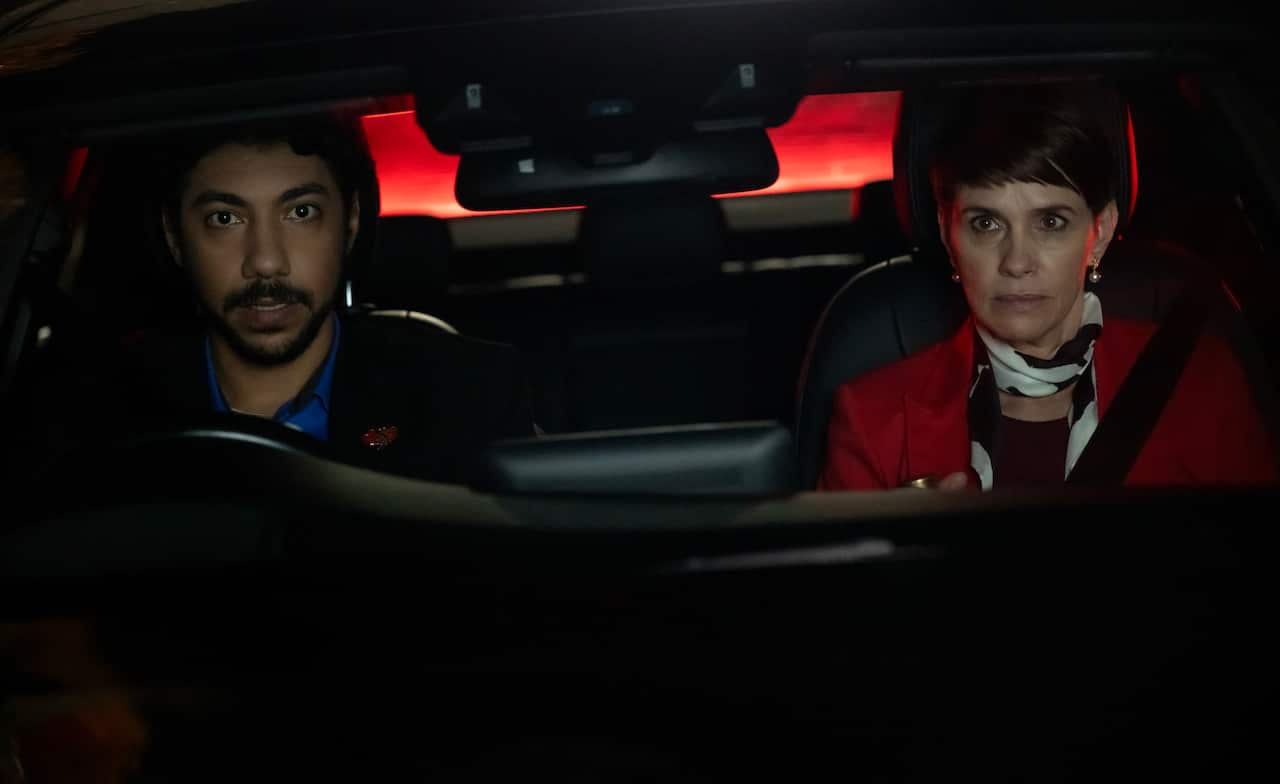
Breaking down boxes
Bedford is a proud Djaru and Gija woman, but as the writer tells SBS News, she doesn't want to be defined as an "Indigenous writer".
"I grew up with a Blackfella father and a white mother, but I just was a Djaru-Gija person. I just was. I didn't really need to prove my own identity," Bedford says.
"I had the cultural confidence surrounding me in both my white and Blak family because they all saw me as Kodie Bedford: a Blackfella, into nerdy stuff, into Buffy [the Vampire Slayer]. 'She says she wants to be a writer.'"
That sense of ease hasn't always followed Bedford in her career; she finds labels still sometimes cling to her despite efforts to shed them.
I feel like I often get boxed into writing those characters.Kodie Bedford
"Coming into this industry, it was great to write characters I wanted to see on screen, but at the same time, I feel like I often get boxed into writing those characters," she says.
"I'm a writer. I can actually write other characters. I don't have to be a cultural consultant on certain thread lines or certain character voices."
Liberation from that "box" came unexpectedly when Bedford moved to London, where she says the prefix "Indigenous" was dropped altogether.
"I was shocked because I have a complicated relationship with a country that invaded our own, but here I [was] getting the respect that I've always wanted in terms of being identified as a writer," she says.
"That doesn't take away from my identity as a Blackfella because you can't do that. I just am. That's the cultural confidence my mob have given me."
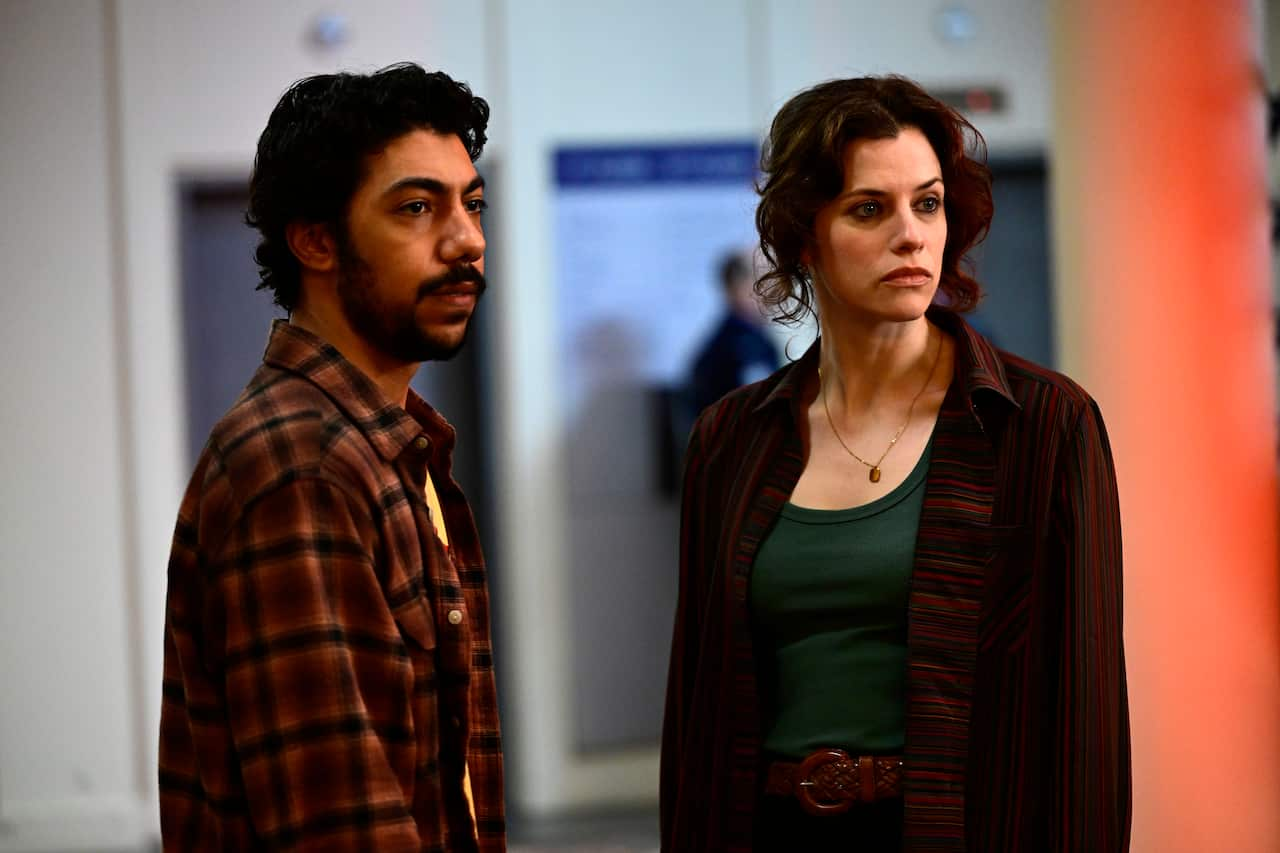
'I want to see Blackfellas behaving badly'
From the very first scene of Reckless, one thing is clear: these aren't great people.
Two squabbling siblings, Charlie played by Page-Lochard and June played by Walton, are driving along a dark road at night when they hit a man with their car. They panic — as mob, they know how quickly the narrative will turn against them.
"Another Blackfella behind bars," says Walton's character.
So, the pair drag the body of the man they hit into his house (conveniently nearby) and stage it to look as if he died in his sleep. When they realise he had cancer, they even convince themselves it's fine. He was going to die anyway.
For Bedford, writing unethical, naughty and downright bad First Nations characters is the point.
My whole career, I've really fought for First Nations characters to be a bit naughty, to be flawed.Kodie Bedford
"When I got this show, I was really excited about getting to have Blackfellas behaving badly," she says.
"My whole career, I've really fought for First Nations characters to be a bit naughty, to be flawed because for me, you look across at the history of television and the most interesting characters are those that are flawed, have questionable morals, and are just really shady at times," Bedford says.
"My whole career, I've been fighting for First Nations characters not to be held up on a pedestal, not to be stereotyped as the noble savage. I want to push the envelope and see interesting Blak characters."
The 'noble savage' is a historically racist trope in fictional storytelling that depicts an Indigenous person as inherently good, morally superior, uncorrupted by civilisation and one with nature.
While the stereotype can be attributed as far back as the 15th century, it's still often used in the modern media. Think: Pocahontas, Avatar, and Dances With Wolves.
It's only relatively recently that Indigenous representation on screen has begun to break free with TV shows like Reservation Dogs, which made history in 2021 as the first mainstream US series with an all-Indigenous writer's room. Elsewhere, Marvel's TV series Echo cast Alaqua Cox as deaf Native American character Maya Lopez: Cox is a deaf amputee from the Menominee Nation.
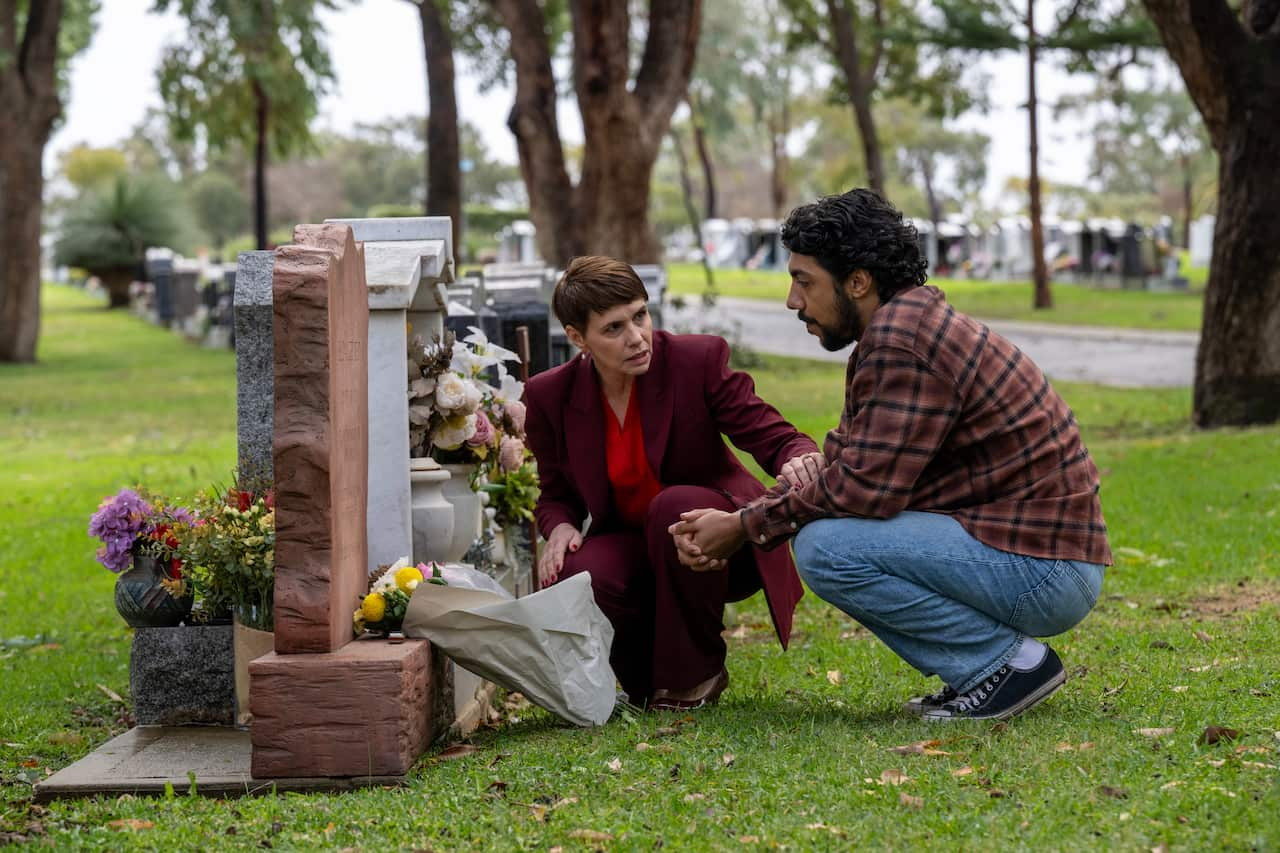
In recent years, the Australian industry has also seen progression.
But First Nations stories on screen, for the most part, have been constrained to narratives that centre history and its impacts. Seen in films and series such as Rabbit-Proof Fence, Redfern Now, or Charlie's Country, they often showcased much-needed depictions of the ongoing impacts of invasion, colonialism, dispossession and the Stolen Generation.
But modern-day representation is pushing past these stories. The 2016 sci-fi series Cleverman (also starring Page-Lochard) saw First Nations peoples become superheroes, steeped in the Dreamtime, while 2019 drama Total Control centred on a First Nations woman (played by Deborah Mailman) navigating the world of politics and exploring how identity and power intersect.
The 2022 Heartbreak High reboot also featured multiple First Nations characters, whose cultural identity is core to their portrayal — but not the entire story.
For Bedford, the goal is clear: more First Nations storytelling, but with the same creative freedom afforded to white characters.
A full circle moment
For Bedford, Reckless also represents a homecoming — not just in filming and setting the story in her home state of Western Australia — but also in her decision to return to SBS, where she began her career.
Bedford started out as a cadet journalist at SBS in 2008, where she was introduced as "the Indigenous cadet journalist" and was subjected to microaggressions and racism by a colleague.
"It was a full-circle moment for me coming back to SBS," she says.
"It sparked an honest conversation … that refreshingly wasn't led by me. To [SBS'] credit, they actually took it as a learning moment."
Bedford — and several other SBS staffers — left the broadcaster in 2010 after sharing similar experiences.
I really believe in the role SBS plays in the Australian television landscape: putting those stories on screen that we don't see.Kodie Bedford
Over a decade on, Bedford's return to SBS is in part because she believes the organisation is "serious about change" and because of its willingness to back "risky" stories.
"I'm never one to hold grudges," Bedford says.
"It was a really easy decision for me … I really believe in the role SBS plays in the Australian television landscape: putting those stories on screen that we don't see, putting those characters on screen that we don't see, taking risks.
"Even though what I had in the beginning was a terrible, terrible experience, I've come out now with the most joyful experience. Isn't that the true meaning of growth?"
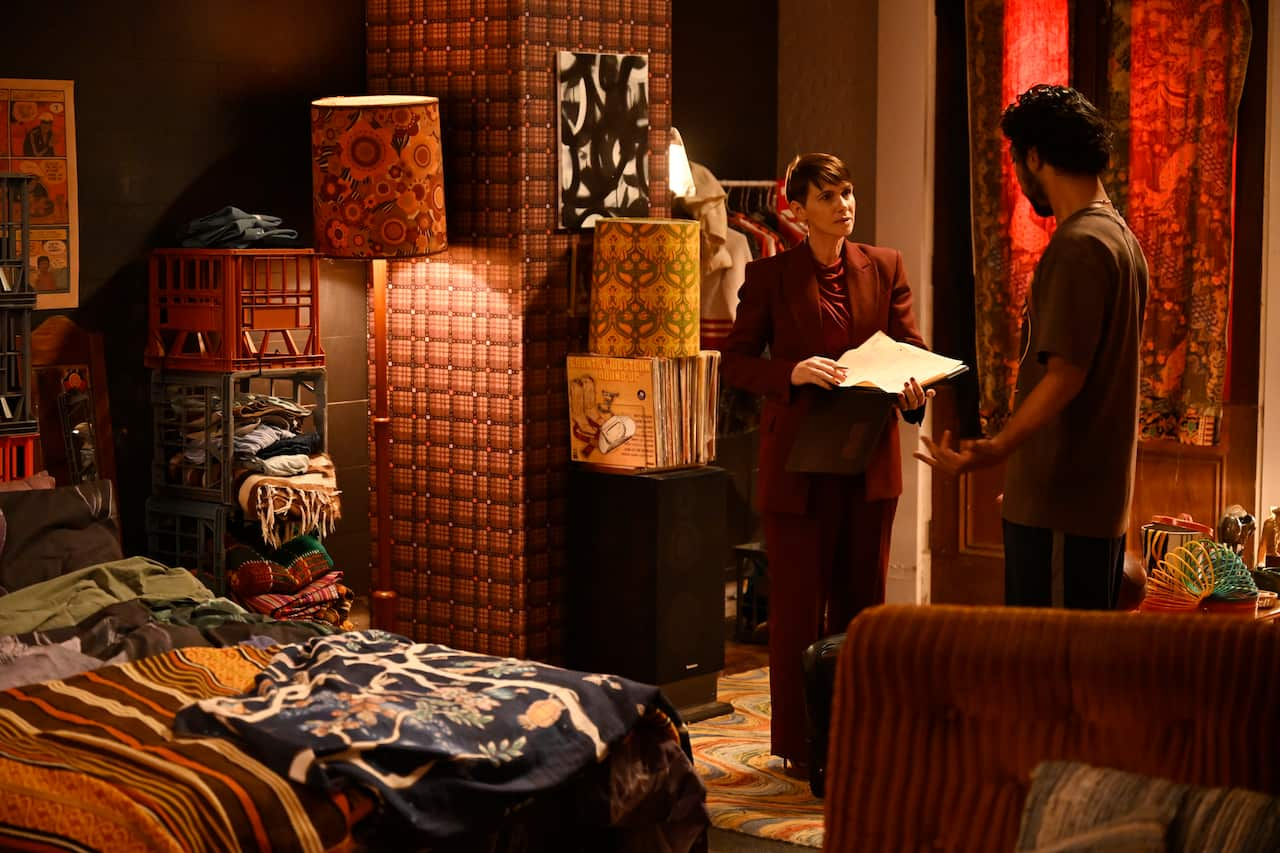
Can race trump class?
Reckless has been adapted from the Scottish series Guilt, set in Edinburgh, but Bedford immediately saw the potential parallels between the two worlds.
"Blackfellas and Scottish people have the same sense of humour," she says.
"Of course, they have a history where they were also invaded and colonised by the same people as we were. It's the resilience part of their comedy."
While Guilt explored class, Bedford wanted to dive deeper into the intersection of class and race in Reckless.
My central question when I was writing this was: can race trump class?Kodie Bedford
"My central question when I was writing this was: can race trump class?"
The show's opening scene sets that in motion: a hit-and-run, a panicked decision to cover up a crime, and a pair of siblings whose differing relationships to race and wealth start to surface.
"[June's] very wealthy, a Blackfella who is wealthy on screen — I hardly ever see that. She believes that her success has trumped her race," Bedford says.
"Whereas Charlie, he runs a humble record shop and he believes his race is part of the community."
But at its core, she says, Reckless is about family.
"At the heart of it, putting aside the crime, putting aside the location, this story at its heart is about siblings and family dynamics."
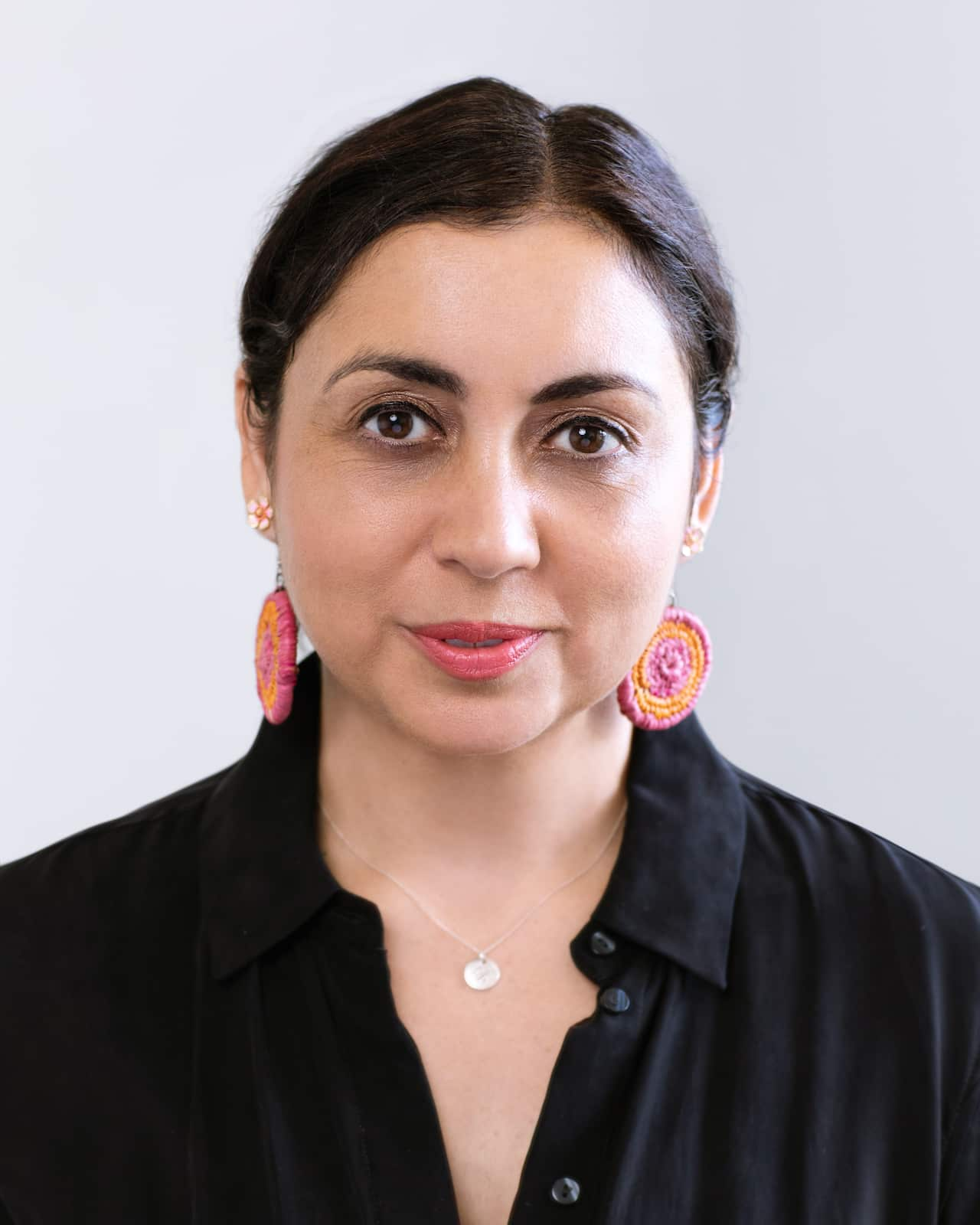
A Blak-led world
Behind the scenes, the project was equally rooted in collaboration and community.
Bedford says the combination of having both mob and allies on set led to one of the "most joyful experiences" of her life.
"It was one of those rare moments where we're all on the same page in terms of tone.
"We were all sort of magically connected and we just collaborate, put our egos aside. This isn't my show, this is all of our show. I think it comes across on screen."
The writer's room was small — just Bedford and Stuart Page (Total Control, Cleverman). She says that while Page is white, they both "gelled" immediately.
As a writer, I don't want to limit myself to just writing Blak characters.Kodie Bedford
"As a writer, I don't want to limit myself to just writing Blak characters. I want to write all characters. I want to just write the yarn," she says.
On set, First Nations people filled key roles across production, acting and creative direction.
Bedford says one production tent was affectionately dubbed "the Aunties tent", where crew would sit, sip tea and debrief.
"[The set] didn't feel different to me because it just was. I feel like this is the world and this is the world we're creating. It was all the same. I hope Reckless feels really authentic because it came from a very authentic place in terms of the world and the people behind the camera."
That authenticity matters in an industry still catching up.
Between 2016 and 2023, Screen Australia found that First Nations main character representation in local drama rose from 4.8 per cent to 7.2 per cent.
Anglo-Celtic characters still dominate the screen at 71 per cent, and the number of First Nations writers and directors platformed on screen remains comparatively small.

'We're not far from seeing Blackfellas in space'
Seeing First Nations stories on screen is also just one part of authentic representation, Bedford says.
For her, progress means going beyond representation into true creative freedom.
"In terms of First Nations storytelling on screen, we've come such a long way and we are seeing this generation of new voices really get out there and tell these stories," she says.
But those stories need to go beyond First Nations history or trauma, she says, and into narratives that allow First Nations characters to be as fully embodied as their white counterparts. "I say that 'I want to see Blackfellas in space'," she says, heralding the idea as a symbol for unrestricted First Nations storytelling.
"I don't think we're that far from it, to be honest. Putting our faces on the screen is done. We've done our history in terms of Australia."
Our direction in terms of Indigenous storytelling is going to places I've always dreamt.Kodie Bedford
Reckless is one small step for Bedford.
"For me, now doing this story where I get to have Blakfellas be a bit naughty and try to get away with murder rather than being the noble character solving the murder, I feel like our storytelling is going that direction."
"There's wealth, there's a murder, and there's being naughty. It's so unfamiliar to what we've seen on screen. Yet, we're ready for it as audiences.
"I think that must mean that our direction in terms of Indigenous storytelling is going to places I've always dreamt — where we get to tell stories without restriction."
Reckless premieres on Wednesday 12 November at 8.30pm on SBS, NITV and SBS On Demand.
For the latest from SBS News, download our app and subscribe to our newsletter.
